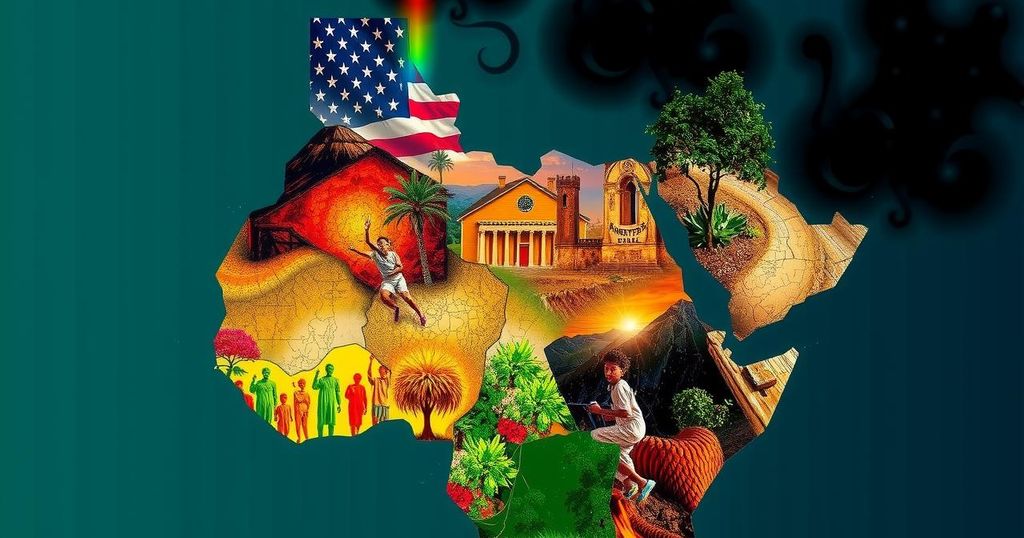A UNICEF report warns that children in sub-Saharan Africa are among the most affected by climate change, with inadequate access to support systems and educational opportunities. The report calls for increased funding specifically aimed at addressing the unique needs of these vulnerable populations, particularly as extreme weather events become more frequent. UNICEF urges global leaders to take immediate action to safeguard children’s futures in the face of climate threats, emphasizing the necessity of tailored educational reforms.
Children in sub-Saharan Africa are increasingly vulnerable to the adverse effects of climate change, yet their needs are often overlooked in global climate funding initiatives. A UNICEF report anticipates that by the 2050s, such children will face intensified climate hazards, including extreme heat waves and flooding, exacerbating their lack of access to adequate shelters, healthcare, clean water, and education. Furthermore, the digital divide in Africa further limits these children’s opportunities and essential skill development for the future.
Research presented in “The State of the World’s Children 2024: The Future of Childhood in a Changing World” reveals that nearly all children in the 48 African countries assessed are considered at high or extremely high risk due to climate impacts. Alarmingly, less than three percent of global climate funding specifically addresses the needs of these young populations. UNICEF has emphasized that decisive action is essential in shaping a livable future for children in light of current environmental threats.
During COP29, UNICEF highlighted an urgent need for actionable commitments to protect children, revealing that over 40 million children in Africa and parts of Asia have been deprived of education due to extreme heat scenarios. The organization criticized national climate contributions for inadequately addressing child-specific concerns and stressed the disproportionate effects of climate change on young people. On World Children’s Day, children from several Southern African nations echoed these sentiments, calling for transformative changes in the education system to align with modern challenges.
The threat of climate change particularly endangers children in sub-Saharan Africa, a region known for its vulnerability to extreme climatic conditions. Factors such as inadequate infrastructure, poor access to healthcare and clean water, and a digital divide exacerbate this hardship. UNICEF’s recent findings indicate that widespread neglect in climate financing leaves African children unprotected from the impending climate crises that are predicted to worsen in the coming decades. The urgency for targeted action is underscored by the expectation that decisions made by current leaders will have lasting ramifications for future generations.
In summary, children in sub-Saharan Africa face significant risks due to the climate crisis, with urgent action needed to address their unique vulnerabilities. UNICEF’s findings call attention to the alarming gap in climate funding for children, highlighting the need for world leaders to prioritize the protection and empowerment of these young individuals. Only through decisive commitments and increased awareness can we ensure the health and future of Africa’s children amidst escalating climate challenges.
Original Source: global.chinadaily.com.cn






